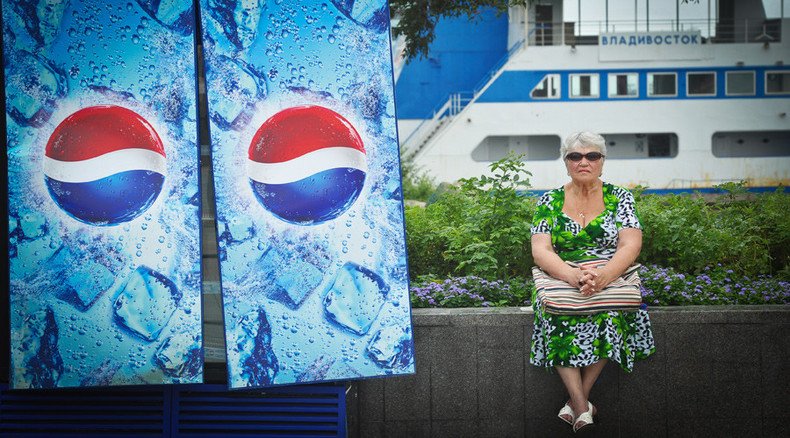Agriculture Ministry rejects proposal to ban Coke, Pepsi in Russia

The Russian government has turned down an initiative to ban imports from US companies Coca-Cola and Pepsico, saying that it contradicts the current law on sanctions as well as the charter of the Russia-led Eurasian Economic Union.
The idea to ban the imports of soda and concentrates from the US and force Russian affiliates of Coca Cola and Pepsico to use only domestic materials at their factories in Russia was proposed by Lower House MP Igor Zotov, the head of the Russian Party of Pensioners in late June this year. In a letter addressed to Prime Minister Dmitry Medvedev, the lawmaker accused the soda giants of sponsoring anti-Russian politicians in the United States, cited health hazards caused by sugary drinks, and said the ban would help Russia to boost domestic production of soft drinks.
READ MORE: ‘Can Pepsi, Coke’: Russian MP asks govt to ban US sodas as counter-sanction measure
Deputy Agriculture Minister Sergey Levin replied by letter, saying that the existing Russian law allows banning of imports from certain countries and of certain types of products, but not of some particular brands and companies. As for the demand to make Pepsi and Coke from Russian-made ingredients, it contradicts the treaty on Eurasian Economic Union that orders all participating nations to use the same manufacturing standards in products sold on their territories.
Earlier, Zotov asked the Russian government to impose an additional tax on foreign fast-food companies and use the money raised on programs to improve the general health of the population. Among the fast-food chains targeted by the head of the Pensioners’ party were McDonald’s, Burger King, KFC, Subway, Starbucks, Papa John's and others. The bill has been so far left without any motion.
A year ago, the Communist Party asked the government to impose sanctions on tobacco, alcohol and carbonated drinks from all countries that support sanctions against Russia. They said such a move would be in the interests of national security. Before that, the Communists had sought an additional tax on sugar-containing drinks, quoting concern over national health.
READ MORE: Foreign booze, tobacco, soda in Communists’ sanction sights ‘to protect Russian genes’
Since August 2014, Moscow has embargoed the import of meat, poultry and fish, cheese, milk, fruit and vegetables from the US, EU, Australia, Canada, Norway, and several other countries that have used sanctions against Russia over its alleged role in the Ukrainian crisis. The ban was initially to last for a year, but was eventually prolonged until August 2016, due to the unwillingness of the West to lift its restrictions on Russia.
This week, Russian customs officers and health officials started destroying contraband food from embargoed nations instead of sending it back to the country of origin. The presidential order to do so has sparked a wave of protests on social networks, but officials noted that even before it came into force, the number of attempts to smuggle sanctioned products into the country had fallen about 10-fold.
READ MORE: 180K+ sign petition against destruction of contraband food at Russian borders












